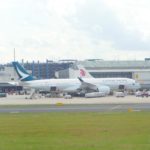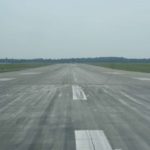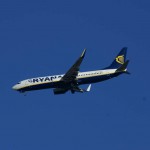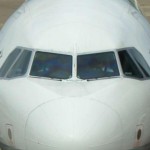Charges due to volcanic eruption amount to EUR 40 million
Berlin – Air Berlin PLC’s consolidated sales for the second quarter of 2010 decreased to EUR 877 million due to the charges incurred as a result of the volcanic eruption in Iceland and the prolonged flight ban resulting therefrom. In the corresponding period of the previous year, consolidated sales (pro-forma, i.e. including the acquired TUIfly City Carrier business) amounted to EUR 935 million. EBITDAR (Earnings before interest, taxes, depreciation, amortization and leasing expenses) amounts to EUR 124.3 million. In the pro-forma comparison, this figure amounted to EUR 160.1 million. EBIT (Earnings before interest and taxes) for the second quarter amounts to minus EUR 28.2 million due to the flight restrictions related to the volcanic eruption in April. In the corresponding quarter of the previous year, EBIT amounted to EUR 15.3 million (on a pro-forma basis). Net result for the second quarter of 2010 amounts to minus EUR 56.9 million, as compared to a Group result (including the acquired TUIfly City Carrier business) of EUR 4.7 million for the second quarter of 2009. The number of passengers traveling on Air Berlin in the second quarter of 2010 decreased by 3.1 percent to 7.99 million.
On a pro-forma basis, business in the first quarter of 2010 still showed an improvement over the corresponding period of the previous year. However, the exceptional charges resulting from natural phenomena occurring in the second quarter had a negative impact on the earnings statement for the first half-year of 2010. For the half-year period, sales revenue amounted to EUR 1.567 billion, i.e. 4.8 percent less than in the corresponding period of the previous year (2009: EUR 1.647 billion). EBITDAR for the half-year period decreased by 11 percent to EUR 168.3 million (2009: EUR 189.1 million). EBITDA (Earnings before interest, taxes, depreciation and amortization) amounts to minus EUR 78.5 million (2009: minus EUR 39 million) and results from operations (EBIT) amount to minus EUR 126.9 million (2009: minus EUR 92.3 million), on a pro-forma basis.
In addition to the charge resulting from the flight cancellations in the second quarter, the results for the first half-year of 2010 were also burdened by the significantly higher cost related to the harsh winter conditions in the first quarter of the year. For instance, service delays, de-icing and longer waiting times resulted in charges amounting to a total of approximately EUR 28 million. Overall, for the 1st half-year of 2010, exceptional charges approximating EUR 69 million had to be absorbed.
The harsh winter, the weak start of the year, and the numerous flight cancellations related to the volcanic eruption in Iceland negatively impacted the number of passengers: After a positive development in February and March, the number of passengers in April decreased by 16.5 percent as compared to the corresponding month of the previous year. The uncertainty with respect to the prospect of further eruptions of the Icelandic volcano led to a very weak recovery of the passenger volume. For the six-month period, the number of passengers decreased by 0.8 percent to 14.23 million (2009: 14.34 million passengers). Fleet capacity rose by 2.2 percent to 19.6 million. The seat load factor (seat capacity utilization) decreased by 2.18 percentage points to 72.59 percent.
Developments of the passenger numbers observed in the first weeks of the current quarter point towards improved business for the second half of the year. Furthermore, growing consumer confidence in Germany is likely to bring about further positive impulses. On the expenses side, Air Berlin’s optimized hub concept and relentless cost control should have a positive effect on the operating margin. Moreover, one-time earnings stemming from the previously announced sale of aircraft and occurring in connection with the first-time consolidation of the subsidiary company NIKI will compensate for the exceptional charges incurred in the first half-year of 2010. Therefore, Air Berlin’s Board of Directors upholds its previous forecast that earnings before interest and taxes in 2010 will surpass those of the previous year.
The Air Berlin Group is Germany’s second largest airline. As at 31st March 2010 the company had more than 8,500 employees. In 2009 alone the Air Berlin Group received more than 10 awards for service and quality. The current fleet, with NIKI, encompasses 165 aircraft with an average age of five years. Consequently the Air Berlin Group has one of the youngest fleets in Europe. The airline’s modern aircraft are extremely fuel-efficient and so provide a lasting contribution to the reduction of aviation emissions. Air Berlin is one of the major airlines in Europe and currently flies to 168 destinations in 40 countries. In 2009 the airline carried around 28 million passengers. Air Berlin has joined the global aviation alliance oneworld®. Full membership is planned for the start of 2012. From November 2010 Air Berlin will be operating codeshare flights with American Airlines and Finnair.
Picture: Carstino Delmonte/ Touristikpresse.net






